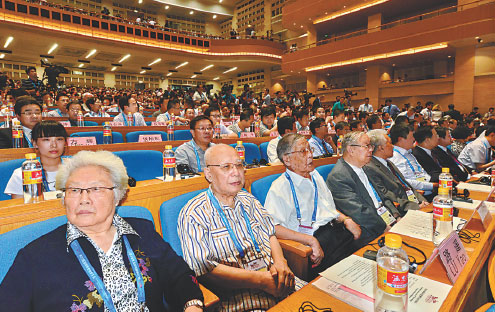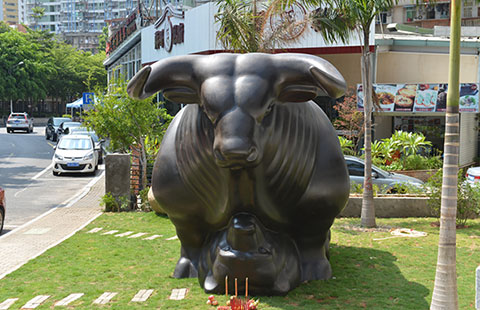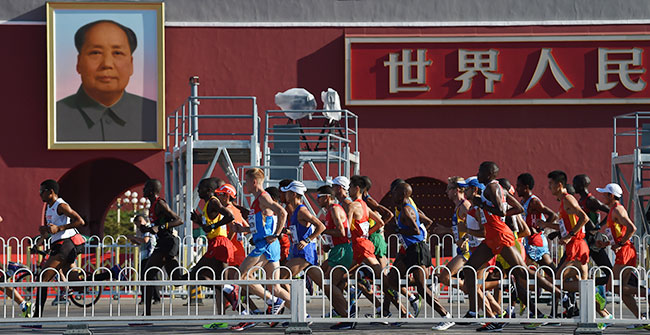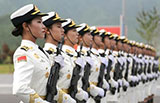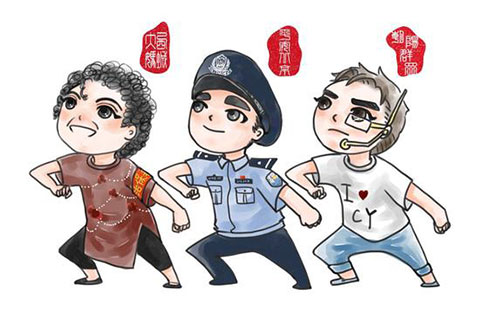Asian debut marks new milestone for the ICHS
By Wang Kaihao and Wang Qian in Jinan (China Daily) Updated: 2015-08-24 07:49
International Congress of Historical Sciences expected to help promote exchange of ideas among different civilizations in the world
The "Olympics of Historians" made its debut in Asia on Sunday when the curtain went up at the start of the 22nd International Congress of Historical Sciences in Jinan, capital of Shandong province.
"Valuing history, studying history and learning from history can give mankind the wisdom to understand the past, make the best of the present and look forward to the future. History, therefore, is our best teacher," President Xi Jinping wrote in a congratulatory letter to the congress.
"Studying China's past may offer an important way to look at China today," Xi wrote. "One can hardly understand today's China, its society, the aspirations and dreams of its people, and the path of development they have chosen, if one has little knowledge about China's history and culture, and those of modern times in particular."
At the opening ceremony, Vice-Premier Liu Yandong called for closer international academic cooperation and equal dialogue to better use historical experiences to promote the harmonious coexistence of different cultures.
"The international congress of historical sciences has long been dedicated to the communication between historians from different countries. Its debut in Asia is a milestone for the world's historical sciences, and it will have a long-term influence on the exchange of ideas among different civilizations, encouraging them to learn from each other," she said.
The world's most influential academic event for the historical sciences, this year's congress has attracted more than 2,600 scholars from 90 countries and regions, breaking the record set by the San Francisco congress in 1975.
Way of looking
The seven-day conference, co-hosted by the Association of Chinese Historians and Shandong University in Jinan, will focus on topics involving four major themes: the digital turn in history, historicizing emotions, China from global perspectives, and revolutions in world history: comparisons and connections.
Marjatta Hietala, president of the International Committee of Historical Sciences, spoke of the ancient Eurasian Silk Road trade routes in her keynote speech to highlight the significance of cultural exchanges. She said she expects the new routes proposed by China, the Silk Road Economic Belt and the 21st Century Maritime Silk Road, to promote regional economic prosperity.
Six Shandong cities are participating in congress by hosting in-depth discussions on historical science issues, beside Jinan, the cities Qufu, Zibo, Qingdao, Liaocheng, and Tai'an are also hosting satellite and parallel meetings pertaining to them.
The first Jeager-LeCoultre International Prize for History will be awarded during the congress. The recipient is French historian Serge Gruzinski, who specializes in the study of Latin American history from the 16th to 18th centuries. Robert Frank, secretary-general of the International Congress of Historical Sciences, called it "the Nobel Prize in historiography". The award ceremony will be held on Wednesday.
"This year's congress will show how successful the efforts of historians to avoid Eurocentrism or avoid research too much centered on the Western point of view have been," Frank said. "This global and transnational trend is very well represented in the program of the Jinan congress," he said.
The International Congress of Historical Sciences was launched in 1900. It is held every five years. China began its participation in 1980.
Frank said that China winning the hosting rights for the event brings the international historical gala closer to a true global community of historians.
In August 2010, the General Assembly of the International Committee of Historical Sciences in Amsterdam voted for China to host the 22nd Congress.
Guo Shuqing, the governor of Shandong, explained that the province, which is the birthplace of great ancient Chinese thinkers such as Confucius and Mencius, was ideal to host the event.
"Shandong is among the birthplaces of Chinese history and science. The Spring and Autumn Annals compiled in 481 BC was China's first historical work. Shandong University, which is known for its literature and history expertise, is one of China's significant research institutions of history. Founded in 1951 by Shandong University, the Journal of Literature, History and Philosophy has long been known as one of the most prestigious and rigorous academic publications in the nation."
Contact the writers at wangkaihao@chinadaily.com.cn
|
Thousands of historians from 90 countries and regions attend the 22nd International Congress of Historical Sciences in Jinan, Shandong, on Sunday. Ju Chuanjiang / China Daily |
(China Daily 08/24/2015 page7)
- National and ethnic unity vital for region, Xi says
- Unnecessary C-sections come under scrutiny in Anhui province
- Navy completes joint beach drill
- Typhoon Goni to hit NE China
- Prisoners in line to be granted special amnesties
- WWII veterans' pensions raised
- 'Double standards' criticized
- Targets set for new Beijing, Tianjin and Hebei megalopolis
- Path smoothed for organ donors
- Scientists ponder exoskeletons
